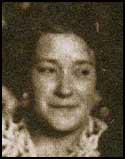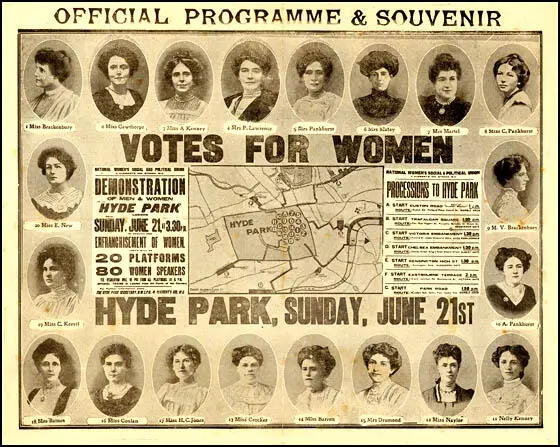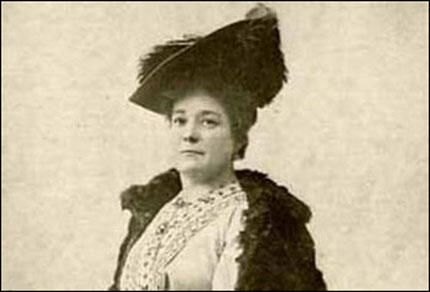Nellie Martel

Ellen (Nellie) Charleston, the daughter of John Charleston, was born on 30th September 1855 at Saint Agnes, Cornwall. She was the seventh of thirteen children. She moved to Australia and on 4th April 1885, she married Charles Martel, a widower from Guernsey. He was a photographer but later became a property developer in Sydney.
In 1891 Nellie Martel joined the Womanhood Suffrage League. In 1894 she was elected to its council and organizing committee. Martel was a talented speaker and soon become one of the best known advocates of women's suffrage in Australia. In September 1901 Martel became the founder and president of Women's Progressive Association of New South Wales. In June 1903 she began making speeches as a member of the Women's Social and Political League. Later that year she was elected president of the Women's Liberal and Reform Association.
In 1904 Nellie and Charles Martel moved to England. The following year she joined the Women's Social and Political Union (WSPU), an organisation established by Emmeline Pankhurst and her three daughters, Christabel Pankhurst, Sylvia Pankhurst and Adela Pankhurst. The main objective was to gain, not universal suffrage, the vote for all women and men over a certain age, but votes for women, “on the same basis as men.” This meant winning the vote not for all women but for only the small stratum of women who could meet the property qualification. As one critic pointed out, it was "not votes for women", but “votes for ladies.”
In 1906 Martel became an organiser of WSPU. The following year Martel published a pamphlet, "The Women's Vote in Australia". In January 1908 she went on a speaking tour of Devon with Emmeline Pankhurst. In her autobiography, My Own Story (1914), Pankhurst recorded that after one meeting: "We were warned that our safety demanded an immediate flight from the town. I laughingly assured our friends that I was never afraid to trust myself in a crowd, and we walked on. Suddenly we were confronted by a crowd of young men and boys, clay-cutters from the pits on the edge of town... A yell went up from the crowd, and we were deluged with a shower of clay and rotten eggs."
The WSPU organised a mass meeting to take place on 21 June 1908 called Women's Sunday at Hyde Park. The leadership intended it "would out-rival any of the great franchise demonstrations held by the men" in the 19th century. Sunday was chosen so that as many working women as possible could attend. It is claimed that it attracted a crowd of over 300,000. At the time, it was the largest protest to ever have taken place in Britain. Speakers included Nellie Martel, Emmeline Pankhurst, Christabel Pankhurst, Adela Pankhurst, Emmeline Pethick-Lawrence, Mary Gawthorpe, Jennie Baines, Rachel Barrett, Marie Brackenbury, Georgina Brackenbury, Annie Kenney, Gladice Keevil, Marie Naylor, Flora Drummond and Edith New.

Martel began to question the leadership of Emmeline Pankhurst and Christabel Pankhurst. She objected to the way that the Pankhursts were making decisions without consulting members. They also felt that a small group of wealthy women like Emmeline Pethick-Lawrence, Clare Mordan and Mary Blathwayt were having too much influence over the organisation. In 1908 Nellie Martel left the WSPU.

Nellie Martel died on 11th August 1940.

